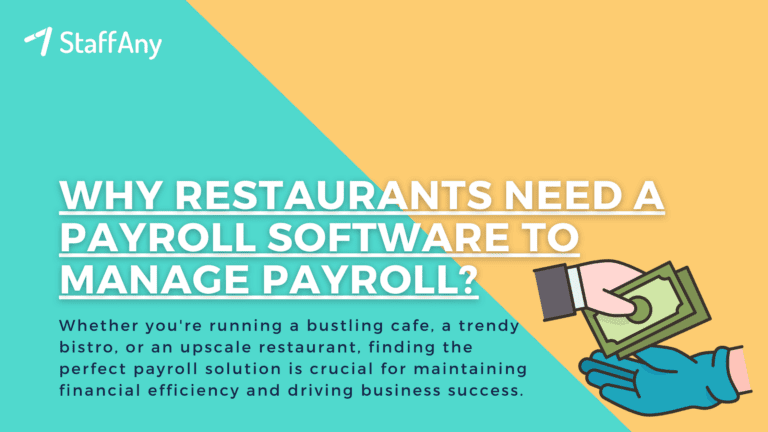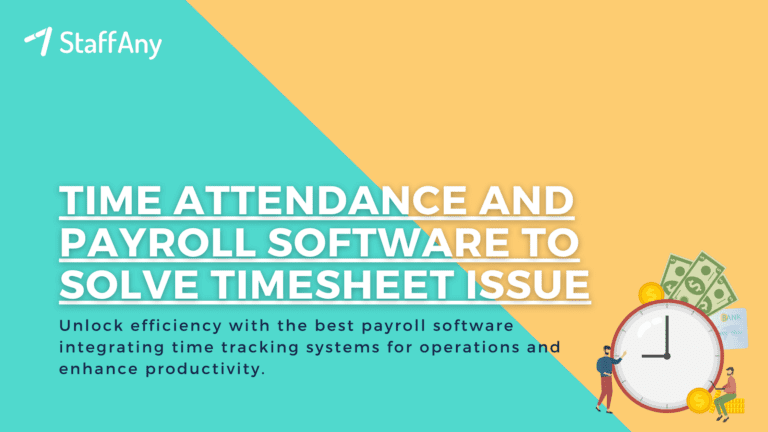Decreased work motivation is a potential cause for decreased employee passion. Be mindful of workplace conditions that affect motivation, as it impacts business success.
Understanding factors that influence motivation and applying strategies to boost it is key. We outline its importance and provide some tips here.
What Is Work Motivation?

Work motivation drives individuals to work and fuels their persistence. It can come from both internal and external sources, providing energy and direction to work with enthusiasm.
In other words, it is the force that energizes, guides, and maintains behavior in the workplace. Work motivation involves a complex interplay of psychological, social, and environmental factors that influence an individual’s level of engagement, persistence, and commitment to achieving their work-related goals.
Internal factors contributing to work motivation may include personal values, interests, and the desire for self-improvement or accomplishment. External factors encompass elements such as recognition, rewards, organizational culture, and the work environment.
The concept of work motivation is deeply linked to psychological theories, including Abraham Maslow’s hierarchy of needs, Frederick Herzberg’s two-factor theory, and B.F. Skinner’s reinforcement theory.
Furthermore, effective work motivation is crucial for individual and organizational success. Motivated employees are more likely to exhibit higher levels of performance, job satisfaction, and commitment to their tasks.
Organizations often implement various strategies, such as recognition programs, professional development opportunities, and flexible work arrangements, to enhance and sustain work motivation among their workforce.
Understanding and addressing the diverse factors that contribute to work motivation is essential for creating a positive and productive work environment.
Read more: 15 Employee Engagement Activities to Keep Your Staff Happy and Motivated
Why Is Work Motivation Important for Employees and Businesses?

Work motivation is crucial for both employees and businesses as it plays a fundamental role in driving individual and organizational success. Here are key reasons why work motivation is important:
For Employees:
1. Job Satisfaction
Motivated employees are more likely to experience job satisfaction. When individuals find meaning, fulfillment, and enjoyment in their work, it contributes to their overall job satisfaction and well-being.
2. Increased Productivity
Motivated employees tend to be more productive. They are focused, committed, and willing to invest effort and time into their tasks, leading to higher levels of productivity and efficiency.
3. Career Advancement
Motivation often translates into a strong work ethic and a commitment to personal and professional development. Employees who are motivated to excel are more likely to advance in their careers and take on new responsibilities.
4. Positive Work Environment
Motivated employees contribute to a positive work environment. Their enthusiasm and positive attitude can be contagious, fostering a culture of collaboration, teamwork, and mutual support among colleagues.
5. Adaptability and Resilience
Motivated individuals are generally more adaptable and resilient in the face of challenges. They are likely to approach setbacks as opportunities for learning and growth, contributing to their overall resilience.
6. Employee Retention
Motivated employees are less likely to seek alternative employment. A positive work experience, coupled with motivation, can lead to higher levels of employee retention, reducing recruitment and training costs for the organization.
7. Enhanced Creativity and Innovation
Motivated individuals are often more creative and innovative. They are more likely to think outside the box, contribute fresh ideas, and engage in problem-solving, which can benefit the organization’s competitiveness.
For Businesses:
1. Increased Productivity and Performance
Motivated employees are more productive, leading to improved overall performance. Businesses with motivated staff tend to achieve higher levels of output, efficiency, and quality in their products or services.
2. Higher Employee Engagement
Motivated employees are actively engaged in their work. Engaged employees are more committed to the organization’s goals, resulting in a workforce that is aligned with the company’s mission and vision.
3. Lower Absenteeism and Turnover
Motivated employees are less likely to be absent from work and are more inclined to stay with the organization. This leads to lower absenteeism rates and reduces the costs associated with employee turnover.
4. Positive Organizational Culture
Work motivation contributes to the development of a positive organizational culture. A motivated workforce creates a culture of accountability, teamwork, and mutual support, enhancing the overall workplace environment.
5. Enhanced Employee Loyalty
Motivated employees tend to be more loyal to the organization. Loyalty contributes to a stable workforce, reducing the need for constant recruitment and allowing the business to focus on long-term goals.
6. Improved Customer Satisfaction
Motivated employees often provide better customer service. Satisfied and engaged employees are more likely to create positive interactions with customers, leading to increased customer satisfaction and loyalty.
7. Innovation and Adaptability
Motivated employees are more likely to embrace innovation and adapt to changes in the business environment. This adaptability is crucial for the organization to stay competitive in dynamic markets.
In summary, work motivation is one of the cornerstone for individual and organizational success. It enhances employee well-being, job satisfaction, and productivity while contributing to a positive organizational culture and improved business performance. Organizations that prioritize and foster work motivation are better positioned to attract, retain, and develop a high-performing and dedicated workforce.
Read more: Top Recruitment Methods to Find the Perfect Hire
Ways to Motivate Employees in Your Business

Once you’ve understood the importance of work motivation and its benefits for employees and businesses, you can now implement strategies to enhance motivation that can improve employee morale and job performance.
1. Set Clear and Achievable Goals
Establish clear, achievable goals for your team using the S.M.A.R.T method. Provide regular feedback and progress updates. When your employees clearly understand what is expected of them, they’ll be more motivated to contribute to the success of the business. In sum, setting clear goals will encourage employees to show their best efforts in their work.
2. Recognise and Reward Employee Performance
Acknowledge and reward employees for their hard work and contribution to boost morale and productivity. Offering tangible or intangible rewards such as bonuses or gift cards, or intangible, such as a public acknowledgement or additional time off, is a great way to motivate them.
According to Gallup, when recognition genuinely resonates, employees are four times more likely to stay engaged and experience a significant 73% reduction in feelings of burnout. By showing appreciation for their contributions, you communicate that their work is valued, reinforcing their sense of purpose and motivation.
3. Provide Opportunities for Growth and Development
Offering training and development programs, mentoring, and job rotations to give employees career growth opportunities is a huge motivation. Employees who feel they are learning and advancing in their career path are more likely to be engaged.
The delivery of education plays a significant role in its ability to motivate individuals. Some people learn better using micro-learning modules, while others benefit from group discussions or classroom-style learning. Thus, it’s crucial to offer employees a range of options for training and development. Equip managers with knowledge about the available resources and assist them in guiding their team members towards the most suitable learning opportunities. This ensures that everyone can access the education that best suits their needs and maximizes their motivation.
4. Foster a Positive and Supportive Work Environment
Foster open communication, a culture of collaboration, and a focus on employee well-being to create a positive work environment. This is a continuous process that when implemented well, can increase motivation, especially when employees feel that their contributions are valued and their well-being is prioritised.
On the other hand, when employees feel respected and included, they develop trust in their managers’ ability to lend an ear. A supportive company culture fosters an environment where individuals can envision a future within the organization, knowing that they can earn their way through dedication and hard work. This positive atmosphere encourages employees to strive for success and see a clear path for advancement based on merit.
Read more: Why Is Employee Engagement Important For Your Business?
5. Create Conviction In The Higher Purpose
Having a sense of purpose is a powerful internal motivator for individuals. People are driven to make a meaningful contribution to a cause they genuinely believe in. By connecting individuals with a purpose that extends beyond themselves, you can inspire them to contribute ideas and strive for excellence in their work.
Some employees may require assistance in understanding how their contributions directly impact business outcomes. Utilizing goal alignment software can effectively demonstrate to employees how their daily tasks align with their team’s objectives and the broader organizational strategy.
Regular check-ins with managers serve as a valuable means to help team members recognize their purpose within the larger context of the organization. This approach ensures that individuals feel connected to a higher purpose and are motivated to perform at their best.
6. Encourage Collaboration and Teamwork
Promote collaboration and teamwork through team-building activities, group projects, and open communication. When employees feel that they are part of a team, they are more likely to be engaged and motivated.
It’s essential to provide everyone with the necessary tools and resources to enhance their contributions to the team. By fostering a culture of teamwork, individuals develop a stronger sense of responsibility towards their colleagues, which can motivate them to perform at their best.
Managers should be trained to lead their teams through simple yet effective team-building exercises. For instance, they can kick off team meetings by encouraging individuals to express their expectations and needs from their co-workers. This approach promotes collaboration, open communication, and reinforces a culture of accountability.
7. Encourage Innovation
Encourage innovation and creativity by conducting brainstorming sessions and idea contests that can bring impact to your team. Recognising employees with new ideas is a great way to motivate them.
Encouraging your team to unleash their creativity and embrace innovation not only fosters a sense of trust in your employees but also allows for the free flow of ideas. Numerous individuals have experienced restrictive work environments in the past, where experimentation was discouraged. By granting autonomy, you can keep your workforce motivated and inspire them to produce superior results.
8. Lead by Example
Leading by demonstrating the behaviours and attitudes you expect from your staff is essential for employee motivation. When leaders show commitment to the company’s goals, employees will be motivated to do the same.
Additionally, in order to drive success, it is crucial for leaders to recruit and cultivate managers who wholeheartedly embrace the company’s mission and vision. These managers should be empowered to assemble high-performing teams comprising individuals who are well-suited for their respective positions. Retaining talent has become increasingly vital, as engaged employees directly contribute to positive business outcomes.
9. Offer flexible scheduling
Offering flexible scheduling as a perk can greatly enhance individuals’ ability to fully immerse themselves in their work. When employees are confined to a rigid 9-to-5 schedule, they often find it challenging to manage unforeseen family responsibilities. Additionally, some individuals naturally perform better during specific times of the day.
By embracing flexible scheduling, workers can tailor their hours to maximize their concentration and productivity. This consideration for their personal needs fosters loyalty among employees, driving their motivation to excel and achieve higher performance levels.
10. Social Events and Celebrations
Organizing social events and celebrations, whether through holiday parties or team lunches, fosters a sense of community and camaraderie. Recognizing achievements and milestones with small gatherings contributes to a positive and inclusive workplace culture.
11. Gamification
Integrating gamification elements into tasks or projects makes work more engaging and enjoyable. Creating friendly competitions with rewards and implementing a gamified rewards system adds an element of excitement and motivation to daily activities.
Read more: The Complete Guide to Employee Performance Evaluation
Streamline your Staff Management with StaffAny Connected Workforce Software
Motivating employees is an ongoing process requiring continuous effort, communication, and support. Implementing effective employee motivation strategies leads to improved performance, as demonstrated by key performance indicators such as work time efficiency.
Let StaffAny help you with a connected workforce to increase employee motivation. With our fully integrated platform, you can empower everyone in the team to take control of their work and perform better! Contact us through WhatsApp to get a free trial of StaffAny!











